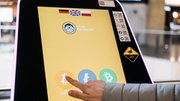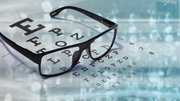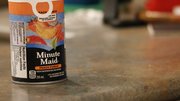Article
Travel group lobbies for security-screening kiosks
The U.S. Travel Association is pushing for a domestic trusted traveler program.

April 13, 2011
Kiosks for flight check in are a staple in airports all over the world, but The U.S. Travel Association is now asking Congress to pass a program that would use them to make security screening faster and more efficient.
The group's proposal includes the creation of a government-run volunteer program that would require participating passengers to supply fingerprints and other personal information in return for an identification card to trade long security lines for kiosks. The machines could either scan fingerprints or use iris-scanning technology to confirm their identity, said Cathy Keefe, manager of Media Relations for the travel group.
"Our first goal is to achieve legislation creating a Trusted Traveler program. "We're proposing that there be a biometric ID system, but we're not proposing any specific technology at this time," said Cathy Keefe, manager of Media Relations for the travel group.
The U.S. Customs and Border Protection already operates a similar program, Global Entry, which allows for expedited clearance for pre-approved, low-risk travelers arriving in the United States. At airports, program participants proceed to Global Entry kiosks, present their machine-readable U.S. passport or permanent resident card, place their fingertips on the scanner for fingerprint verification, and make a customs declaration. The kiosk issues the traveler a transaction receipt and directs the traveler to baggage claim and the exit.
Keefe said Global Entry is proof that trusted traveler programs work, and the group wants domestic travelers to have the same options.
"We're advocating that Congress create legislation to create a domestic trusted traveler program that would be overseen by TSA," said Keefe, who also explained that the program wouldn't skimp on security. In fact, it "would utilize a risk-based approach to checkpoint screening, with the goal of re-focusing resources on the highest risk passengers."
Passengers and carry-on bags would also pass through an explosives-detection device, but there would be no requirement to remove shoes, coats or hats.
The travel group outlined its idea in a report co-written by Tom Ridge, former secretary of homeland security, and former Congressman Jim Turner (D-Texas), who was on the House Homeland Security Committee.
"We are continuing to reach out to policymakers to build support for the issue," Keefe said.
Keefe also said consumers could help make Congress aware of the issue by participating in the group's newly launched BeTrustedNow.org campaign.
"It is our hope that legislation will be introduced sooner than later," Keefe said
 ChatGPT
ChatGPT Grok
Grok Perplexity
Perplexity Claude
Claude









